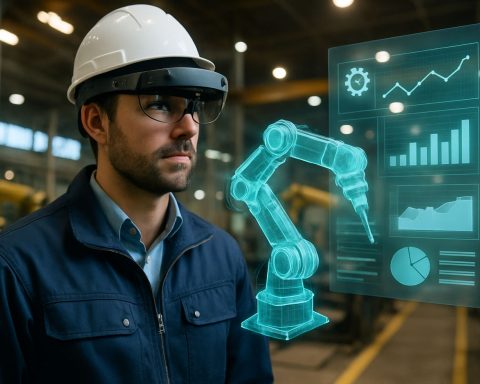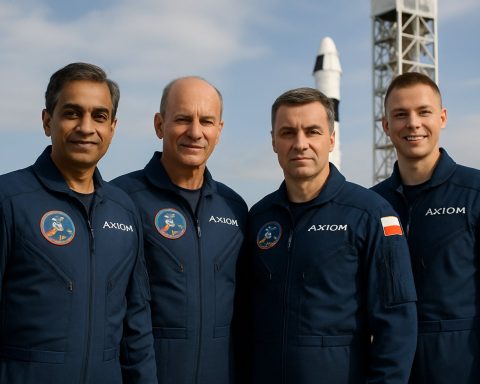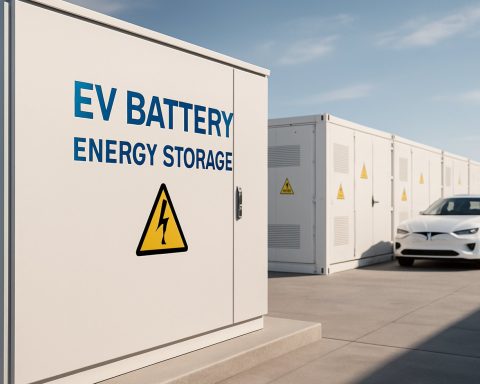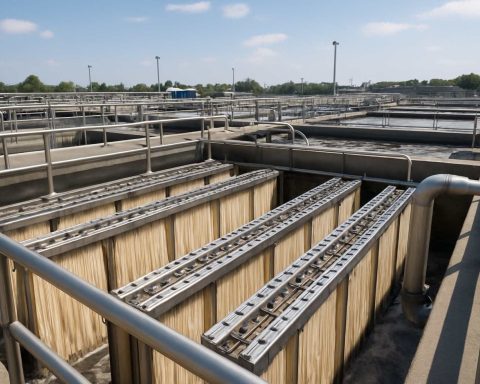- Europe faces a crucial decision between nuclear power and renewable energy to meet climate goals by 2040, reflecting ideological divisions over sustainable futures.
- Nuclear energy is supported for its potential in reducing emissions and pollution, yet haunted by safety concerns from past incidents like Chernobyl and Fukushima.
- France increases nuclear investment, while Germany shifts to coal, highlighting a divide that could impact collective EU climate efforts.
- Emerging technologies like small modular reactors offer safer, more efficient nuclear options, but a mix of nuclear and renewable energies could secure energy independence.
- The debate encapsulates the struggle to balance past influences with future aspirations for a carbon-neutral Europe.
Europe stands at a crossroads, grappling with a high-stakes energy dilemma that pits nuclear power against renewable energy sources in a bid to achieve ambitious climate goals by 2040. This clash is more than policy—it’s a collision of ideologies and visions for a sustainable future. As nations navigate their energy paths, this discourse holds crucial implications not only for Europe but for the global economy and environmental objectives.
Nuclear power’s advocates see it as a crucial player in dramatically cutting greenhouse emissions, reducing pollution, and maintaining energy stability across the continent. However, Europe is haunted by the specters of Chernobyl and Fukushima, incidents that cast long shadows over nuclear’s safety and environmental legacy. This history invigorates opposition, spotlighting the persistent concerns over radioactive waste and reliance on external uranium, primarily from Russia.
France is doubling down on nuclear investment, planning new reactors to secure its energy future, while Germany regresses to coal under nuclear skepticism—a divergence that poses energy security risks and raises questions about collective commitment to fossil-free futures. The discord threatens to stall much-needed collaboration in the face of climate change, leaving the EU at risk of greater reliance on fossil fuels.
Innovative solutions like small modular reactors (SMRs) and enhanced grid technologies are emerging, promising safer and more efficient nuclear options. Yet, the bigger picture suggests a blend of nuclear and renewable sources could be key to Europe’s energy independence and sustainability.
Ultimately, Europe’s energy debate is a vivid reflection of a society torn between what was and what could be. The path to a carbon-neutral future demands reconciliation of these divides, leveraging both nuclear and renewables to fuel a greener tomorrow—a timely ambition confronting existential climate threats.
Can Europe Overcome Its Nuclear vs. Renewable Power Dilemma?
How Do Innovations in Nuclear and Renewable Energy Shape Europe’s 2040 Climate Goals?
Europe’s energy dilemma revolves around balancing nuclear and renewable energy sources to meet ambitious climate targets by 2040. As nuclear power advocates focus on reducing greenhouse emissions, innovative solutions like Small Modular Reactors (SMRs) and advanced grid technologies present new options. SMRs offer safer, scalable nuclear energy alternatives, with faster deployment and lower upfront costs. Simultaneously, advances in wind, solar, and battery storage technologies are enhancing the feasibility of renewables as a primary energy source. The integration of these innovations could be crucial for achieving Europe’s carbon-neutral ambitions.
Pros and Cons of Nuclear vs. Renewable Energy in Europe
Pros of Nuclear Energy:
– Provides a stable, baseload energy supply, crucial for consistent power delivery.
– Low greenhouse gas emissions once operational, aligning with environmental goals.
– Emerging technologies like SMRs promise increased safety and reduced waste.
Cons of Nuclear Energy:
– Safety concerns still linger due to past incidents like Chernobyl and Fukushima.
– High initial costs and long construction times for new reactors.
– Radioactive waste management remains a long-term environmental challenge.
Pros of Renewable Energy:
– Clean energy source with minimal environmental impact during production.
– Increasingly cost-effective due to technological advancements.
– Reduces dependency on imported fuels, enhancing energy security.
Cons of Renewable Energy:
– Intermittency issues require robust storage solutions and grid enhancements.
– High initial investment costs for infrastructure development.
– Potential land use conflicts and environmental impacts from large-scale installations.
Can Europe Balance the Energy Mix for Sustainable Growth?
The energy landscape in Europe underscores a need for diversified energy strategies. A balance between nuclear power and renewable sources could enhance energy security, reduce environmental impact, and support economic growth. Collaborating across borders to integrate nuclear and renewable technologies could lead to a resilient and sustainable energy system. By leveraging the strengths of both energy types, Europe stands a better chance of achieving its 2040 climate goals, addressing both environmental concerns and geopolitical energy dependencies.
For further insights and updates on Europe’s energy dynamics, visit:
IEA
Greenpeace
The path forward requires Europe to reconcile past experiences with future possibilities, navigating a complex energy transition to meet critical climate objectives.











